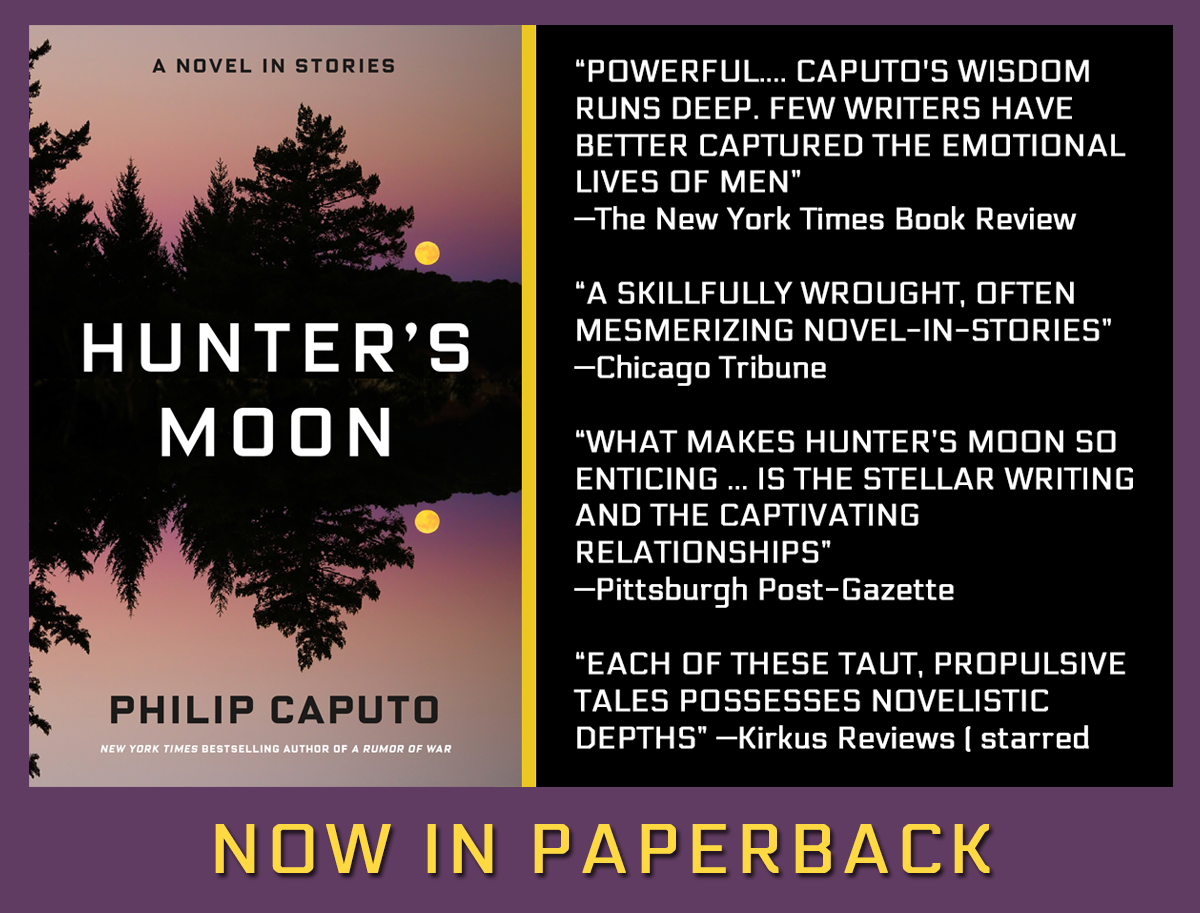Acclaim for THE LONGEST ROAD
(see The Longest Road interviews and essays on the Interviews/Media page)
Click on the media name to read the entire review online…
The Boston Globe
“Caputo is an amiable guide and he writes with a casual yet searching tone similar to that of Ian Frazier; and fans of Frazier’s “Travels in Siberia” will find many parallels….
‘I was looking for a reincarnation of myself as I was half a century ago, a college dropout under Kerouac’s spell,’ Caputo writes by way of an explanation for his trip. He may not have unearthed his old self, but he demonstrates an impressive sense of adventure for a 70-year-old in this chockablock tale of America and its many colors….”
The Chicago Tribune
“He had me at the itinerary.
Even though Philip Caputo sets up a far-reaching, serious justification for his new book, “The Longest Road,” you can’t help but get as excited as he seems to be by the basic premise.
What would it be like to leisurely drive from the southernmost point in the United States (Key West, Fla.) to as far north as the pavement runs (Deadhorse, Alaska)?
… Further on the road, he and his wife volunteer to help the then-recent tornado victims in Tuscaloosa, Ala. Surrounded by selfless folks from around the country, they experience America at its best. And that’s the way it goes throughout the journey. People all over America are a lot less worried about what holds the country together than Caputo is. They simply feel, as one Missourian puts it: “that we have more in common than not. … I’m not sure it’s true, but the important thing is that we believe it is.”
To his credit, Caputo doesn’t belabor the issue and instead lets the trip unfold along the blue highways. It’s fun to tag along as an expert reporter recounts the sights, offers little history lessons and yanks stories from strangers at every stop. …”
The Miami Herald
“… [Philip Caputo and his wife] encounter a diverse and occasionally colorful cast of characters along the way. A skilled and seasoned reporter, Caputo strikes small veins of storytelling gold…. An easy, entertaining and at times provocative summer read.”
The New York Times Sunday Book Review
“… [Caputo] keeps the narrative moving with his observant eye and mordant sense of humor. In the dismal oil-company town of Deadhorse, north of the Arctic Circle, he notes one hotel’s efforts to make a virtue of its ugliness: “‘Overnight in camp-style rooms consistent with the industrial heritage of the region,’ reads its ad in The Milepost. Translation: Your room looks like a dumpster with a window.” Caputo and his wife reach the end of their journey on a “rocky brownish shoreline, where chunks of beached driftwood were scattered like bones.” By the time they get home, he has heard plenty of theories about the glue that binds Americans together, including the “dynamic disequilibrium” of its federal government and a single word suggested by the Airstream’s owner back in Texas— “hope.”
Washington Independent Review of Books
“… In a season that calls out for road trips both real and imaginary, Caputo’s long haul across the country is a worthy addition to your vicarious travel plans. If you’ve never eaten at a town’s only diner or seen with clear eyes the collapse of America’s small farms, a glimpse of Middle America will do you good — and even if you have rural roots, it’s worth taking a trip to the kinds of empty wildernesses that don’t appear on the average summer travel itinerary. It might not be the voyage of a lifetime, but when there’s someone else battling the bugs, heat and rocky roads — and paying the gas tab! — it’s worth riding shotgun on this journey of 8,000 miles.”
New Haven Register
“A perfect vacation book that’s funny and erudite at the same time.”
National Geographic’s “IntelligentTraveler.com”
“Caputo is keenly attuned to the natural wonders of our country, and to the time-perspective they bestow. But he is equally attuned to the human wonders, and movingly portrays a cavalcade of fellow travelers, restaurant workers, small-town business owners, and other unforgettable characters. … While Caputo’s account has its moments of disillusion and near disaster, in its entirety Caputo creates a kind of verbal fireworks display that illuminates the United States in all its diverse and yet indivisible glory.”
Kansas City Star
“A new travelogue for a new millennium.”
Publishers Weekly
“… Faced with a double dose of mortality—his father’s death and the prospect of turning 70—Caputo decided in 2011 to live a long-dormant dream. He hitched an Airstream trailer to a pickup truck and drove from the southernmost point of the U.S (Key West, Fla.) to the northernmost point (Deadhorse, Ala.). During the trip, the Pulitzer Prize–winning author (A Rumor of War) asked people he encountered one burning question: what keeps the nation together during this wobbly period of high unemployment and political fragmentation? Caputo avoids an exercise in earnest, neon-flashing patriotism by simply letting his smalltown subjects talk. The interviewees—including a husband-and-wife missionary team, a French-speaking saloon owner, and a young man looking for hope in a desperate Indian reservation—yield uncluttered insight into the makeup of the American spirit. Caputo also provides ample historical background to the trip’s sites and a nice dose of humor. Curious and genuine, he weaves these elements together to produce a continental tale that is always engaging and frequently reassuring.”
Booklist
“… Injecting misadventures into the narrative, Caputo recounts an overland voyage that emphasizes the people he meets: Christian evangelicals; volunteers helping tornado struck Tuscaloosa, Alabama; a Missouri farmer; residents of Pine Ridge Indian Reservation; and an assortment of Alaskan eccentrics. Pithily capturing their characters and opinions about the state of America, Caputo snares reading devotees of a classic American theme, the road trip.”
The Bismarck Tribune
“… As good as [Caputo’s] descriptions are of the landscapes through which they traveled, what’s really enjoyable are his descriptions of the people he came upon and his reporting of what they said. He has a fine eye for painting interesting and detailed word pictures of the many colorful characters he met along the way.
This is a very enjoyable and satisfying travel book that reads easily. I particularly enjoyed the postscript, which is a photo of the two English setters with the caption, “In Memory of Aurora Sage, July 10, 1998-December 21, 2011 — Still Hunting.”



RECENT COMMENTS